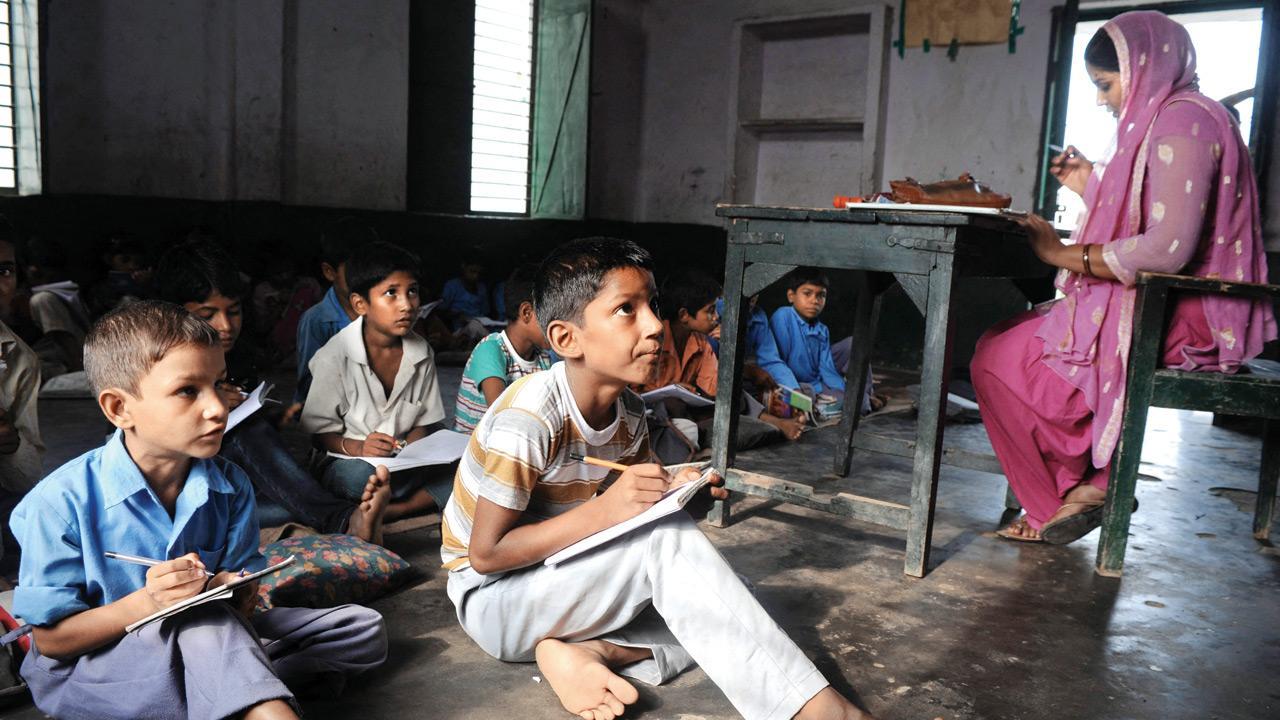If parents allocate funds in ways that make their children’s lives better, why can’t the government do the same?

If it takes a pandemic to make us realise that we spend less on infrastructure than we do on tall statues of politicians, we should all have our heads examined. Representation pic
I’m pretty sure replacing the men in Parliament with women is the only way to get it to function with some degree of intelligence. I say this in the aftermath of directives related to online learning, when parents everywhere have been forced to confront the reality that India doesn’t have a clue about how to manage education. If you don’t believe me, have a chat with the parents of any school-going children you happen to know. Ask them if they have been satisfied with what their child’s school has been doing, and if they believe they could have done a better job.
ADVERTISEMENT
Let’s put aside the fact that millions of children across our country have no access to computers, let alone printers, scanners, Internet connections, routers, or any kind of software necessary for online learning. Looking at how middle-class Indians are struggling, despite access to some of these things, is enough to make anyone with an iota of common sense wonder how we can refer to ourselves as a developing nation while keeping a straight face. If it takes a pandemic to make us realise that we spend less on infrastructure than we do on tall statues of politicians, we should all have our heads examined.
Parents everywhere are trying to do more with computers than they have in their lives. Those familiar with them may find a way of balancing work with the requirements of school, but for every tech-savvy mom or dad who knows how to download the latest version of Adobe Acrobat and make a PDF readable, there will be a hundred others trying to make sense of directives from schools that will never be fulfilled. They will simply stare at blinking monitors, wondering how to use Powerpoint so their children don’t fail a class.
What about teachers? Has anyone bothered to check if they are capable of imparting knowledge online? Do they have the tools and resources, access to data, and software that allows them to pay attention to the huge classes they are used to juggle in real life? Do they know how to instruct a class on biology and dissection, for example, with students spread across a few kilometres, far from their school laboratories? It may seem like a fairly simple question, but attempting to answer it lays bare the truth that our government cares about education as much as it cares about public health. By this, I mean to say it doesn’t care at all.
Education has never been a priority for our ministers, of course, a majority of whom stop darkening the doors of educational institutions after their fifth or sixth years in school. It’s why they can’t spell words like ‘strength’, don’t understand how climate change works, and come up with questionable degrees in dubious subjects like ‘Entire Political Science.’ It is their refusal to speak to experts that causes the most harm though, because they then define the educational policies of our nation and base them upon their prejudices. It’s why our department of education is more obsessed with rewriting history in textbooks rather than making sure everyone has them. They allow their ignorance to get in the way, which is why our children have all been let down more badly than usual during this pandemic.
We tend to confuse education in India with what we see in private schools, which function on high fees collected from those who can pay them. We conveniently ignore public schools funded by our taxes that do such a dismal job of educating millions of children. They aren’t our children, so we don’t care, even though we should, given that it is our money being used to create and mismanage those institutions. Walk into any government-funded University and evaluate the kind of resources available to faculty to get a sense of how far we fall behind developing countries that take education seriously.
Housewives juggle budgets with the kind of skill and efficiency that is hard to come by in most corporate boardrooms. They take limited funds at their disposal and make sure their children have access to the best resources their money can buy. India has access to large amounts of money, almost none of which is used in ways that benefit our most vulnerable citizens. It’s why I believe we should leave our ministers to focus on renovating Parliament or initiating communal riots, and divert important things like education and healthcare to India’s women. We will be a far better country for it.
When he isn’t ranting about all things Mumbai, Lindsay Pereira can be almost sweet. He tweets @lindsaypereira
Send your feedback to [email protected]
The views expressed in this column are the individual’s and don’t represent those of the paper.
 Subscribe today by clicking the link and stay updated with the latest news!" Click here!
Subscribe today by clicking the link and stay updated with the latest news!" Click here!






